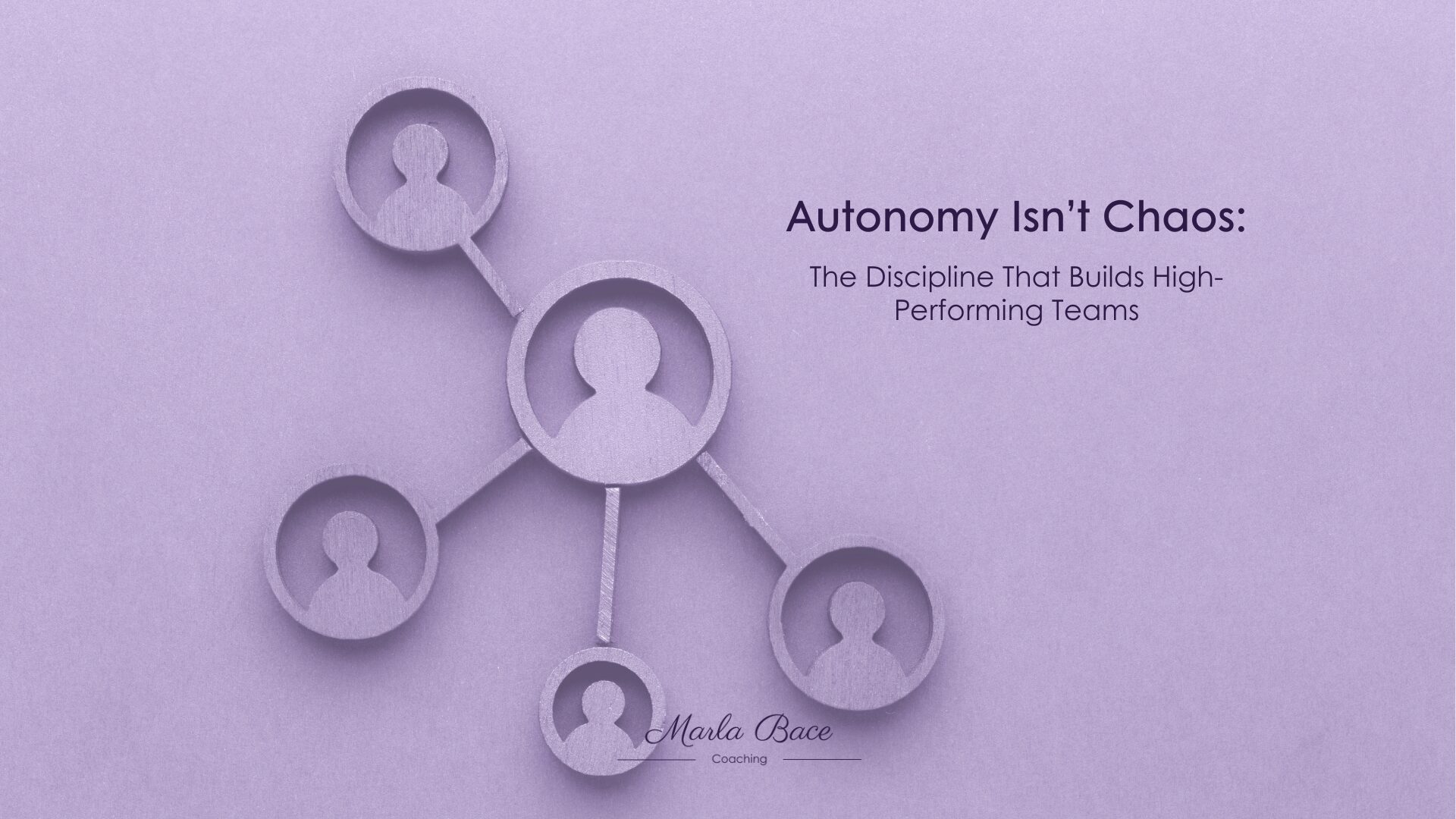Empowering teams through effective delegation is a cornerstone of successful leadership. When considering strategies for delegation and autonomy, let‘s take the example of a project manager who delegates the task of data analysis to a team member who excels in this area. The project manager is not just assigning a task; they are entrusting the team member with a responsibility that leverages their strengths and skills, fostering a sense of ownership and motivation. By understanding and implementing effective delegation strategies like this, leaders can distinguish themselves from managers, creating a dynamic and empowered workforce.
Understanding Delegation: Define Delegation and Its Benefits
Delegation is when leaders assign tasks, responsibilities, and authority to their team members. It involves transferring the responsibility for specific tasks or projects while maintaining overall accountability. The benefits of delegation are multifaceted:
- Increased Productivity: Leaders who delegate can focus their attention on strategic initiatives while team members handle operational tasks, increasing productivity overall.
- Enhanced Skill Development: Delegated tasks provide team members with new skills and experiences, paving the way for their professional growth and career advancement. This not only benefits the individual but also contributes to the overall success of the team and the organization.
- Improved Motivation: Empowering team members responsibly can increase their motivation and job satisfaction.
- Innovation: Delegation encourages diverse opinions, perspectives, and new ideas, fostering innovation within the team.
An executive coach plays a crucial role in helping leaders understand the benefits of delegation and develop effective strategies. They can assist leaders in identifying tasks suitable for delegation, balancing workload, building trust, and providing continuous support. By aligning these strategies with their team’s strengths and organizational goals, leaders can enhance team performance and drive profit and productivity.
The Difference Between Delegation and Abdication
It’s crucial to distinguish between delegation and abdication of responsibility. Delegation involves assigning tasks while providing the necessary support and maintaining oversight. On the other hand, abdication is relinquishing responsibility without proper guidance or follow-up, which can lead to confusion and a lack of accountability. However, even with proper delegation, there are risks such as miscommunication or lack of clarity. Leaders can mitigate these risks by ensuring clear communication, providing continuous support, and maintaining oversight.
Effective delegation requires:
- Clear Communication: Clearly outline the task, expectations, and deadlines.
- Support: Providing the necessary resources and guidance.
- Oversight: Monitoring progress and providing feedback.
An executive coach can assist leaders in finding the right balance between delegation and abdication, ensuring that team members are empowered without being left unsupported.
Identifying Tasks for Delegation: Criteria for Deciding What to Delegate
Not all tasks are suitable for delegation. Leaders should carefully evaluate which tasks can be delegated based on several criteria:
- Repetitive Tasks: Tasks that are routine and do not require the leader’s direct involvement.
- Tasks Aligned with Team Strengths: Assign functions that match the skills and strengths of team members.
- Development Opportunities: Delegate tasks that provide learning and growth opportunities for team members.
- Time-Consuming Tasks: Tasks that take up a significant amount of the leader’s time but can be managed by others.
Balancing Workload and Leveraging Team Strengths
Leaders must balance the workload and leverage their team’s strengths to ensure effective delegation. This involves understanding each team member’s capabilities and current workload. Leaders should aim to distribute tasks to maximize efficiency and productivity without overwhelming any individual team member.
Executive coaches can provide valuable insights and tools to help leaders assess their team’s strengths and distribute tasks effectively. This not only enhances productivity but also boosts team morale by ensuring that everyone is contributing according to their abilities.
Building Trust Through Delegation: How to Build Trust with Your Team
Trust is the foundation of effective delegation. Without trust, team members may hesitate to take on new responsibilities or make decisions independently. Building trust requires open and transparent communication, consistency in actions and decisions, empathy towards team members’ concerns, and recognition of their achievements. By fostering these trust-building behaviors, leaders can create an environment where team members feel nurtured and empowered to take on delegated tasks.
- Transparency: Communicating openly about expectations, goals, and challenges.
- Consistency: Follow through on commitments and be reliable.
- Empathy: Understanding and addressing team members’ concerns and needs.
- Recognition: Acknowledging and celebrating team members’ achievements and contributions.
The Role of Trust in Effective Delegation and Team Autonomy
Ownership of work products can improve when trust is shown through task delegation and work autonomously. When team members trust their leader and feel trusted in return, they are more likely to be proactive, innovative, and committed to their responsibilities. Trust also reduces the need for micromanagement, allowing leaders to focus on strategic priorities.
An executive coach can help leaders develop strategies for building and maintaining trust within their teams, creating a culture of respect and collaboration.
Providing Support and Resources
Effective delegation goes beyond ensuring team members have the necessary tools and support. Leaders should:
- Identify Resources: Ensure team members have access to the necessary resources, such as training, technology, and information.
- Offer Guidance: Provide clear instructions and be available to answer questions and support.
- Remove Obstacles: Address barriers hindering progress, such as bureaucratic red tape or resource shortages.
The Importance of Continuous Support and Follow-Up
Delegation is an ongoing process that requires support and follow-up. Leaders should:
- Check-In Regularly: Schedule regular check-ins to discuss progress, provide feedback, and address any issues.
- Provide Feedback: Offer constructive feedback to help team members improve and learn from their experiences.
- Celebrate Successes: Recognize and celebrate milestones and achievements to maintain motivation and morale.
An executive coach can assist leaders in developing adequate support and follow-up strategies, ensuring that delegation leads to positive outcomes for the team and the organization.
Encouraging Autonomy and Accountability
Empowering team members with autonomy and accountability is essential for effective delegation. Leaders can cultivate a sense of ownership by:
- Setting Clear Expectations: Communicate each delegated task’s goals, responsibilities, and expected outcomes.
- Encouraging Decision-Making: Empower team members to make decisions within their areas of responsibility, cultivating a sense of ownership and accountability.
- Providing Autonomy: Allow team members to approach tasks independently while offering guidance and support as needed.
How to Balance Autonomy with Oversight
Balancing autonomy with oversight is crucial to ensure that delegated tasks are completed effectively. Leaders should:
- Establish Checkpoints: Set regular checkpoints to review progress and provide feedback.
- Maintain Open Communication: Keep communication lines open to address concerns or questions.
- Monitor Progress: Use project management tools to track progress and ensure tasks stay on track.
An executive coach can help leaders balance autonomy and oversight, ensuring team members feel empowered while maintaining accountability.
Dealing with Collaboration Despite Lacking Confidence
Embracing collaboration is essential for mitigating toxic team environments. Leaders can start by acknowledging their insecurities and recognizing that asking for help or seeking input from others does not diminish their authority but rather strengthens the team. It’s crucial to focus on the collective goal and the greater good of the team rather than individual insecurities. Leaders can foster a collaborative atmosphere where everyone feels valued and empowered by actively listening to team members, valuing their contributions, and acknowledging their expertise. By embracing these collaborative behaviors, leaders can overcome their personal barriers and create a more productive and positive team environment.
Seeking Mentorship and Coaching
Leaders can seek mentorship or coaching to boost confidence and develop the necessary skills for effective collaboration. An executive coach can provide personalized strategies for building confidence in collaborative leadership approaches. By prioritizing collaboration over personal doubts, leaders can create a healthier and more productive work environment.
The Role of Coaching in Delegation
An executive coach is vital in helping leaders develop effective delegation strategies. Coaches provide personalized guidance and support, assisting leaders in identifying areas for improvement and developing actionable plans. They offer insights and techniques for effective communication, trust-building, and conflict resolution, all essential for successful delegation.
Personal Anecdotes or Case Studies Illustrating Successful Delegation
Consider the example of a senior executive who struggled with delegation. Despite having a talented team, they found it difficult to relinquish control and trust their team members. With the help of an executive coach, they learned to identify tasks suitable for delegation, communicate expectations clearly, and provide the necessary support. Over time, the executive saw significant improvements in team productivity and morale and increased innovation and collaboration.
Another case involves a mid-level manager who was overwhelmed with day-to-day operations. By working with an executive coach, they developed a delegation plan that leveraged their team’s strengths. This freed up the manager’s time for strategic initiatives and empowered team members to take on more responsibility and grow in their roles.
Conclusion
Effective delegation is a powerful tool for leaders. It drives profit, productivity, and team motivation. By mastering the art of delegation, leaders can distinguish themselves from managers and foster a dynamic and empowered workforce. Key strategies include understanding the difference between delegation and abdication, identifying tasks suitable for delegation, building trust, providing continuous support, and balancing autonomy with oversight.
An executive coach can support the development of these strategies, helping leaders navigate the complexities of delegation and enhance their leadership capabilities. Leaders often create a culture of collaboration, innovation, and accountability within their teams by investing in coaching and continuous improvement. As you reflect on your delegation practices, consider seeking the guidance of an executive coach to unlock your team’s potential and set yourself up for success.
Empower your team, delegate effectively, and watch your organization thrive.





